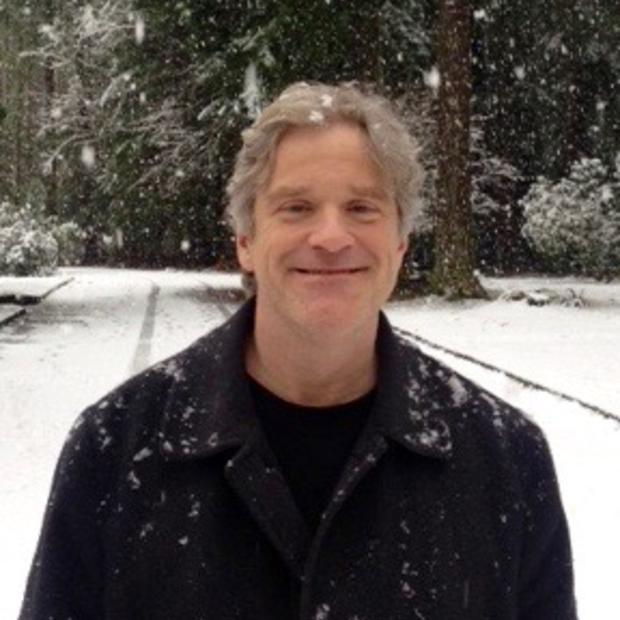Washington as a bellwether has a much sweeter ring than, say, "Washington, the following-precedent-and-conventional-wisdom state." With same-sex marriage, Washington voters could redraw the trend line and upend a nationwide pattern of nixing marriage equality. Or not. (If only political science was actually a science.)
"The political landscape in this state differs in other ways from nearly every other state in which voters weighed in on the matter of marriage," the Herald's Jerry Cornfield writes. "First, Washington lawmakers chose to pursue an expansion of gay rights in small steps rather than go for the big prize of marriage right away. In the past six years, the legislature enacted laws banning discrimination based on one's sexual orientation, enabled same-sex couples to register with the state as domestic partners and expanded the rights and responsibilities for those relationships."
An incrementalist strategy has already conditioned Washingtonians to accept that same-sex unions don't foreshadow the Apocalypse (and, disappointingly, that same-sex couples are just as soporific and ordinary as heterosexuals.) Referendum 74 is also atyptical because it would strip Washingtonians of a liberty promulgated by the legislature. Sandbagging an existing right is inimical to the Northwest's semi-libertarian political tradition, even when that right is something as contentious as marriage equality.
A person's bus route, like all daily routines, is quasi-sacred. A nod to the driver who nevertheless stares past you, nabbing the side-aisle seat closest to the door, always avoiding the guy in the wool cap who wants to discuss the perils of fluoridation. Don't mess with my bus route, King County Metro. Change is a-coming, however, and it could hit like a transit version of Vatican II.
"King County Metro Transit is preparing for what it calls the biggest package of route changes in the agency's history, cutting thousands of service hours from outlying Seattle neighborhoods so more buses run on busier corridors," the Seattle Times' Mike Lindblom writes. "The Sept. 29 shake-up enables Metro to deliver the new RapidRide C line in West Seattle and the D line in Ballard, as promised in a 2006 ballot measure." As Spock told Captain Kirk in Star Trek II, the Wrath of Khan, "The needs of the many outweigh the needs of the few."
South Lake Union could have an unanticipated competitor (hint: the Washington city across the mountains with the motto, "Near nature, near perfect.") In Spokane, city pashas are pumped about a medical campus that could spur long-term growth and recast the city's urban landscape. Might it be the real deal or simply too good to be true?
"The emergence of a medical education campus in downtown Spokane promises to define the city for decades to come. Community leaders say the project rivals Expo ’74 in scope and audacity," the Spokesman Review's John Stucke writes. "The price tag will rush past $1 billion, community leaders say, and build upon the rehabilitation of the city’s downtown and its growing medical sector, which already accounts for 20 percent of Spokane’s economy."
Expo 74 is an instructive counterpoint to Seattle's 1962 World's Fair. The Spokane fair revolved around 'tomorrow' as well but with a grounded, optimistic focus on the environment. Its legacy is still visible with Spokane's Opera House and Riverfront Park.
Evergreen State may need to jettison its mascot. The geoduck, once a quirky, phallic-marine bivalve little known outside of the Northwest, has suddenly become a hot item in China and other parts of East Asia. The demand has goosed prices to the point that Evergreen might as well be called the Evergreen Caviar. Occupy Olympia take note: Geoducks reek privilege.
"A single pair of these gleaming mollusks sold at a Puget Sound dock could pay for an upscale Seattle dinner for two. A half-dozen sold in a Hong Kong grocery could fetch nearly enough cash to make a four-figure mortgage payment. Three milk crates of these shellfish purchased at a Shanghai restaurant could pay for a year of undergraduate tuition at the University of Washington," the Seattle Times' Craig Welch writes.
Lastly, Midday Scan's author will not be seduced by the delightful story of the perfect game pitched over the weekend at Safeco Field. That's because the pitcher in question is not a Mariner and Northwesterners are, by nature, parochial creatures. Instead, Tim Egan's Sunday column merits a read because 1) Egan does not reference said perfect game and 2) he presents a compelling argument that teetotalers such as Mitt Romney don't necessarily make good presidents.
Applying the Egan criterion to the gubernatorial sphere, one of Washington's more heavy drinking governors was Harry Truman's pal, Mon Wallgren (an Everett native no less.) What was Wallgren able to achieve in one short term? As HistoryLink's Margaret Riddle writes, "During his administration, the legislature established the state teachers' retirement program; adopted the most liberal welfare program in the nation; increased unemployment benefits to the highest in the nation; set up the Governor's Development Board, which stepped up state participation in school building programs and adopted a highway-safety program." Cheers!
Link Summary
The Herald, "Precedent against same-sex marriage"
Seattle Times, "Metro bus riders face big changes"
The Spokesman-Review, "A healthy pulse for Spokane"
Seattle Times, "China's demand for geoducks sends prices, profits soaring in the NW"
New York Times, "The wrath of grapes"


